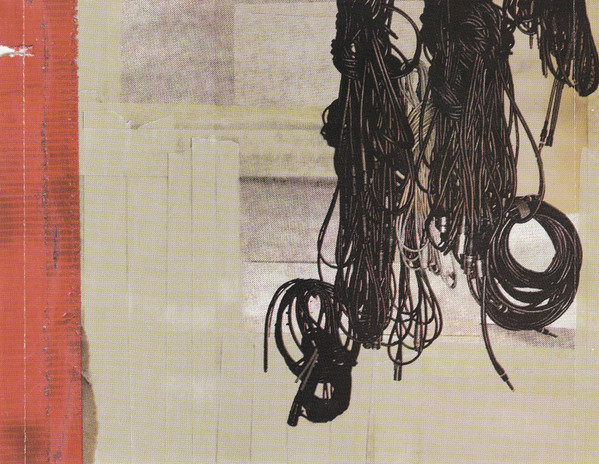This is part Three of the forgotten indie series. catch up on pervious entires:
part one / Part two
Intro: Taking a cue from the Forgotten Gialli film series put out by Vinegar Syndrome, which highlights movies from the Italian thriller subgenre that have fallen through the cracks, I’ve created my own indie-rock variety. As is the case with any form of art, what is considered “forgotten” depends on the audience, not necessarily the availability. This series will focus on albums put out around the early aughts, sometimes delving into the late 90s, but I hope to avoid anything beyond 2010, and earlier than 1990. Most of the records spotlighted will be from my personal CD collection.
Context: In a first for the series (and a sign that it’s maybe jumped the shark), all three of the spotlighted records are widely available across multiple music streaming services. Music streaming services are not the world. With that in mind, as of this writing, the most popular song on Queen of the Meadow is “Black Acres” with 1,143,023 plays. “Blue Pail Fever” off Woven Hand has 917,000, and “Strangler” off Televise has 94,925 plays.
But enough about metrics, on to the records.
Elysian Fields – Queen of the Meadow
(Jetset, 2000)


After a critically lauded but commercially disappointing debut under the auspices of major label Universal Records, Elysian Fields, the goth-rock duo of Jennifer Charles (sultry vocals, multi-instrumentation) and Oren Bloedow (guitars) went into the studio with iconoclastic producer Steve Albini to record the follow-up. Universal found it uncommercial and refused to release it (several of the tracks from the sessions eventually saw the light of day on the band’s Bandcamp page under the title Clinical Trial). Undeterred, the band retreated to the studio and recorded a new album for indie label Jetset Records. That record would come to be known as Queen of the Meadow, and sees the band dialing back some of their harsher sonics for an even more sexy, lounge-pop inspired sound. It’s still dark as hell, with murder ballads (“Rope of Weeds”), Edgar Allan Poe aural adaptations (“Dream Within a Dream”), and songs perfect for your next Halloween playlist (“Fright Night”). The softer instrumentation is a perfect fit for Charles’ bedroom whisper vocals, but the band still had trouble breaking through into the US market, while the Europeans seemed to embrace their brand of musical debauchery.
Video:
Lyric:
“Take me to your dark places / Like an asp I’ll suck the traces”
Rec’d if you like (RIYL):
Darkwave but find it too scary, goth girls, Nick Cave murder ballads
Wovenhand – Woven Hand
(Soundsfamilyre, 2002)


I remember exactly where I was when I purchased this album. I was on a family trip through Chicago when we stopped at a northside record store and I walked out with this. Woven Hand. I’m pretty sure I paid $19.99. That’s how much brand new CDs cost then. I had belatedly gotten into the band Sixteen Horsepower after they had already broken up, so I was excited by the news that frontman David Eugene Edwards was preparing to release a solo record under the name “Wovenhand.” A lot of solo musical projects have a tendency to sound like pared down versions of songs that could easily fit on the full band record. Not the case here, where Edwards blazes an entirely new sonic path, pulling from low church hymnals, Eastern European religious folk music and a little bit of American punk rock. Sometimes all in the same song. These don’t sound like Sixteen Horsepower b-sides but something wholly new and exciting. It’s still one of my favorite records from the band, with Edwards carving out a niche for himself as a truly special Bible and brimstone voice for both believers and un-.
Video:
Lyric:
“What are you about / Say something secret / In an old order hush / Trouble and suffering in a lovely rhythm / A homespun clapboard blackstrap thrush”
RIYL:
The Old Testament, Clint Eastwood in Unforgiven, folk-horror
Calla – Televise
(Arena Rock, 2003)


Calla is a curious case. A New York City-based rock band that came onto the scene at the same time as fellow post-punk influenced bands such as Interpol, Bloc Party, Yeah Yeah Yeahs, et. al but never had the same mainstream success as those groups. Looking back it’s not altogether surprising. Calla didn’t have a charismatic lead singer, they didn’t have “the hooks,” and they never had a breakthrough single they could play on Jimmy Kimmel Live. After two albums of textured, moody soundscapes, the band fully embraced three minute songcraft on Televise, but their songs still had more in common with slowcore bands like Low and Codeine than Franz Ferdinand. Their lyrical subject matter as well, especially on Televise, was filled with violent, sadomasochistic imagery: strangling, choking, cruel intentions, crawling back for more. Their follow-up in 2005 for Beggars Banquet Records, Collisions, would push singer Aurelio Valle’s vocals higher in the mix and garner the band a then-coveted song placement on Fox’s teen drama, The O.C. But at this point the band’s careful rhythms and half-whispered vocals were still a better fit for the drowsy come down than the Take Me Out.
Video:
Lyric:
“Breathe instead of choking / Try and pace yourself”
RIYL:
Slowcore but meaner, Interpol but dark and sexy, sleeping > dancing
